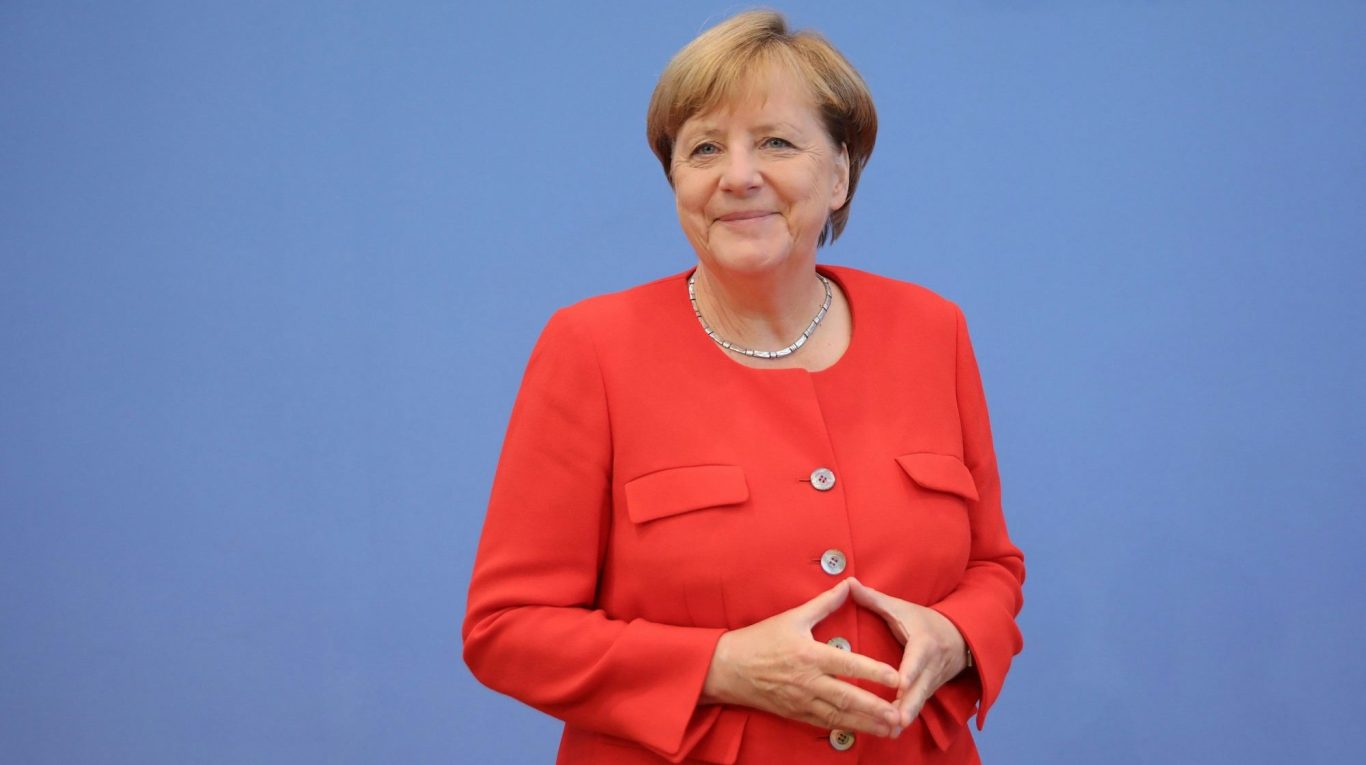English version
Me and Mrs Chancellor
My foreword to the translation of Mrs Merkel's most important speeches into Farsi:
There are many books about Mrs Merkel on my bookshelf. Most of the time, visitors to our house assume that my husband is a supporter of Mrs Merkel. However, when they find out that I am actually the one who is fascinated by Mrs Merkel, they are surprised.
At the same time as the publication of Mrs Merkel's autobiography (Freiheit by KiWi Verlag), I completed the translation of seven of her most important speeches and handed them over to an Iranian publisher for publication.
I do not yet know whether this book will receive the approval of the Ministry of Culture and Islamic Guidance and be printed, but the foreword I wrote for this book explains well why I admire Mrs Merkel so much. In the following, I would like to reproduce the translation of this foreword in German:
Mrs. Federal Chancellor is undoubtedly one of the most important political figures of this century. Yet, for me, she is more than just a politician. Chancellor Merkel represents the symbol of female leadership— living proof that leadership can and should be humane. She is the first chancellor elected consecutively for sixteen years in a democratic system.
After deciding to step away from politics, a woman recounted during the election campaign for the next term in a television interview that her young daughter pointed to the photos of men on campaign posters and asked, “Mom, can men also become chancellor?” This is a childlike, sweet question that illustrates how this woman has forever changed the stereotypes of governance in the world.
As a physicist, an East German citizen, and the first female chancellor of Germany, Chancellor Merkel is a role model for me—a female engineer and migrant. Whenever I feel intimidated by the enormity of a task ahead, I stand in front of the mirror, press my fingertips together, and say to myself in Merkel's tone: We can do it!
I emigrated to Germany at the end of 2019. Three months after my arrival, the world faced an unprecedented challenge: the coronavirus pandemic. For a newcomer, every change seems bigger than it is, and every challenge is more complex than it actually is. A migrant always carries two burdens simultaneously—the difficulties of current life and the persistent concerns about their homeland. At that time, I was worried about my family and loved ones in Iran while also feeling uncertain about how I would face...

My living room was almost empty. A small television and an old table had been left by the previous tenants. In my first attempt to turn this apartment into a home, I purchased a shelf and a carpet from Ikea. For me, as someone from the East, a carpet symbolizes home—a place of comfort. One day in mid-March, shortly before the Persian New Year Nowruz, I sat on my small carpet, full of concern about world events, waiting for the Chancellor's speech.
Chancellor Merkel said: “I am speaking to you in this way today because I want to explain what guides me as chancellor and what guides all my colleagues in the federal government in this situation. This is part of an open democracy: we make political decisions transparent and explain them. That we justify and communicate our actions as far as possible so that they are understandable.”
On that day, I thought, if there were a class on democracy, today’s speech would surely be a chapter of it.
She said: “The situation is serious. Take it seriously. Since the Second World War, there has been no challenge for our country that has so greatly depended on our solidarity.” And I began to redefine these words in my mind: democracy, transparency, solidarity.
She continued: “Those who die are not abstract numbers but fathers or grandfathers, mothers or grandmothers, partners. They are people, and we are a society in which every single life counts.”
I thought of the countless victims of COVID-19, war, poverty, and discrimination in other countries—of all those who were just numbers to their governments, whose lives and individuality didn’t matter. Of the governments and leaders around the world whose understanding of the world doesn’t encompass the dignity of the individual. And I thought: I am here, I have the chance to hear these words, and I must learn from them.
Today, almost five years later, after overcoming COVID-19 and the challenges of life in a new country, I have the opportunity to translate some of the most important and memorable speeches of the most powerful female leader of the modern world into my native language and share the joy of rediscovering these values with my compatriots.
Three speeches from this collection, from the years 2008, 2015, and 2021, have been published in a book titled “What Then Is My Country” by Aufbau-Verlag. The texts of all these speeches are available on the official website of the Federal Chancellery.
Kommentare
© Urheberrecht. Alle Rechte vorbehalten.
Wir benötigen Ihre Zustimmung zum Laden der Übersetzungen
Wir nutzen einen Drittanbieter-Service, um den Inhalt der Website zu übersetzen, der möglicherweise Daten über Ihre Aktivitäten sammelt. Bitte überprüfen Sie die Details in der Datenschutzerklärung und akzeptieren Sie den Dienst, um die Übersetzungen zu sehen.
